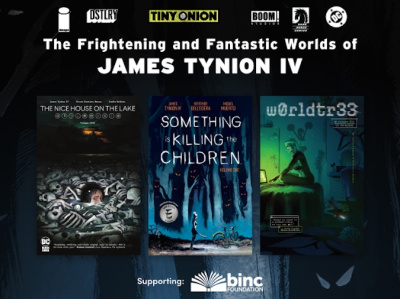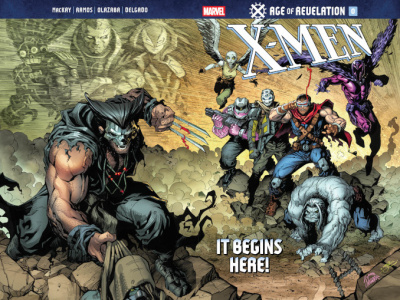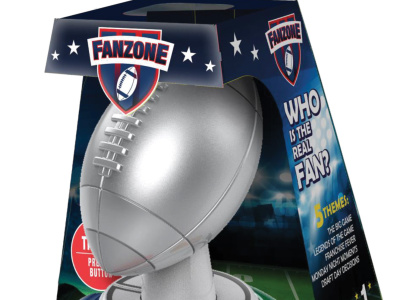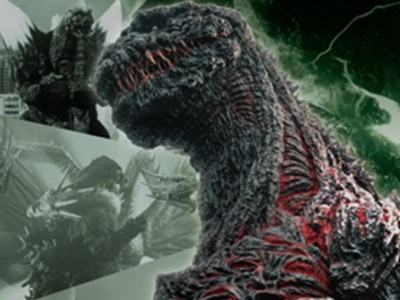Humble Bundles are a rotating series of collections of digital products that are sold and distributed online at a “pay what you want” price determined by the customer; a percentage of the purchase is donated to a charity, or charities. ICv2 talked recently with Humble Bundle’s Director of Books Kelley L. Allen about the company’s recent expansion into comics Bundles, the ways Humble Bundles are used by comic publishers and their impact on sales, and plans for future Bundles.
When was Humble Bundle formed, and when did you do your first comics bundle?
Humble started in 2010. Our two co-founders were game developers for a company called Wolfire Games. They wanted to get more exposure for their games so they got together with some other indie game developers and had their first Humble Bundle back in 2010. From that first bundle there was a charity component and much to their chagrin, the bundles went on to make over $1 million. I kid that they must have thought to themselves, "Hey, we’re in the wrong business." So they decided to do more Humble Bundles. In December 2014 we were proud to release a press release stating that we reached over $50 million that we’ve donated to charity since that initial Bundle in 2010.
We do mostly games; we bundle digital games together. We do some physical merchandise, but in general it’s digital. A few years back we did our first foray into books, and they did incredibly well. I just celebrated my first year at Humble, so back in April we did our first comic book Bundle with Image Comics that did incredibly well. That Bundle made $399,000, so that was our very first Bundle with comics.
The customer makes choices about the ratios of the different Humble Bundle roles?
The way it works is whenever we have a Bundle we have three different buckets where the money is divided into: the publisher, the charity, and there’s always the "Humble Tip." The defaults for those [three buckets] is 65% of the gross to the publisher, 20% to charity, and 15% to the Humble Tip. What’s interesting about this business model is that customers can actually change that default. They can say "we want 100% to go to the publisher," or "we want 85% to go here," or "we like this charity or this charity." It’s a very interesting business model because it gives the trust back to the customer.
From Humble Bundle’s perspective, it is a retail channel, a fundraising company, or something else?
We see ourselves as many different things. I know that a lot of our publishers don’t see us as a retail channel, at least for books. For games it’s a little different because we do have the Humble Store and we do sell games. For books, my publishers, it works as a highly promotional vehicle, so that’s something that we work together on to promote up-and-coming titles, backlist, and if a huge front list title coming out they see that as a way of getting the word out. On the book side it’s definitely not a retailer relationship.
We do have the charity component which is very much ingrained in what we do. We currently have about 40 charities that we work closely with. As I mentioned before we’ve raised $50 million for charity and we’re up to $51 million as of this month. On the book side, we’ve raised nearly $1.5 million for charity since 2014.
Is Humble Bundle a for-profit company or a charity?
We do make profit, so we’re not exactly 100% charity; we do have the Humble Tip component which defaults 15%, so there is that component. Most of the money goes back to the creators and to charities.
For the book and comic book publishers, is it fair to say that Humble Bundle is viewed as a sampling platform?
I would say yes. Most of our bundles reflect that. We’ve been doing a lot of showcase bundles. We’ll have one publisher and a showcase of sampling of some of their titles. We’re starting to get away from that so they’re showcasing a particular brand rather than a large collection of their characters or brands.
Seems like comics are on the low end of the dollars you bring in for your bundles. Is that accurate?
We’re definitely growing this market. Book publishing is very different from the [video] gaming industry. If you look at, overall, the gaming industry in comparison to book publishing, book publishing makes in one year what game publishing makes in one month. It’s like comparing apples and oranges. Overall the publishers are incredibly happy with the numbers. These are really healthy numbers in publishing.
The average bundle of books and comics together last year made $275,000; the mean was $120,000 all the way up to $563,000 for our top bundle last year. The book bundles collectively made $5.6 million last year, which includes audio books, books and comic books. Out of that, roughly $3.5 million were comic book bundles. We worked a lot with the comic publishers and they did quite well.
So over half of your book category is comics.
Correct.
In what formats do you offer comics content, and why did you choose those formats?
We offer a variety of different formats. We offer PDFs in hi-res and low-res, ePub, and for comic book lovers we offer CBZ files. It really depends on the device the user is reading the formats on so they can choose the one they prefer. That’s why we offer a variety of different formats.
And they’re basically all portable formats; you can read them on any device?
Correct. And they’re all without DRM as well.
Why did you decide to not use DRM?
Frankly, with books we haven’t found a platform that’s user friendly with DRM. It’s very intrusive. We can’t find anything comparable to Steam in the book world. If we could find a Steam that could interface with books and not be a deterrent to a good reading experience, we’d consider it. To date we have not had a single book with DRM.
Do you have any information on what happens to comic content after it’s sold in a Humble Bundle? There’s a lot of pages involved. Do the customers end up reading it? Does it stimulate any other behaviors after they get it?
That’s an interesting question. We know a lot from what we observe from our customers, comments on social media, and we have some analytics as well. What’s interesting in the behaviors is some people will buy a bundle for one or two titles because they’ve been looking for that title, so they’ll buy the whole bundle. We also see people that have made comments about being excited about having discovered a particular series and they like it so much they went out and bought the rest of the series digitally. I’ve had people tell me this first hand: they’ve discovered their local comic book store or book store and they went out and bought the whole series or a series of a particular author because of the discoverability of the bundle.
So the idea of a sampling function of a Humble Bundle does seem to work out that way?
Yes. Very much so. People have literally told me, "I discovered this series, I loved it. I actually went out and bought the entire collection in both the digital and print." I found that very, very interesting.
Where do comics Humble Bundle customers come from? Are they after a particular I.P. or supporters of a specific charity, are they people that look at your site on a regular basis so are Humble Bundle customers first? Any idea of how that breaks down?
We see that a lot of people are brought in by the newsletter. We have a [book] newsletter that we opted in when we did the first Dr. Who bundle back in May, so that’s our most engaged newsletter at Humble. We also do a lot on social media. Our social media numbers are live on our site, so if you go to our site and take a look at the bottom you’ll be able to see our impressive social media numbers. For example, our Facebook is 405,000; Twitter 337,000 followers; and Google Plus is a staggering 2.4 million.
A lot of our customers are first off big Humble fans, and we also have been reaching out to other channels as well to get the word out. With books we’ve been reaching out to blogging sites, social media sites, all sorts of different ways to get the word out. We’re growing this business to say the least.
Did the comics charity percentage vary from your general average?
I haven’t looked to see if there’s a correlation about the charity percentages based on comic book bundles vs. regular bundles, but generally we’ll see that charities make a little bit more than the default 20%, they’ll make 25%, in general.
What was your best ever comic bundle?
That would be the Dr. Who comic bundle presented by IDW. That was launched in May 2014 and the charity was Doctors Without Borders. We went out and signed up Doctors Without Borders just for that particular bundle. We partnered with them several times since then with other games and books. That bundle went on to make $563,000.
Anything else that our audience might find interesting?
This year I’m going to be shaking it up a bit and partnering with new comic book publishers and doing a lot of experimenting. We’re getting away from these showcase bundles and we’re going to be doing very curated bundles, smaller bundles, and throwing in a few one-week bundles here and there.
We’re also going to be partnering with other partners who don’t actually have content but have a large book audience, so be on the lookout for that. 2015 is shaping up to be a very interesting year so I’m looking forward to see how the results turn out.
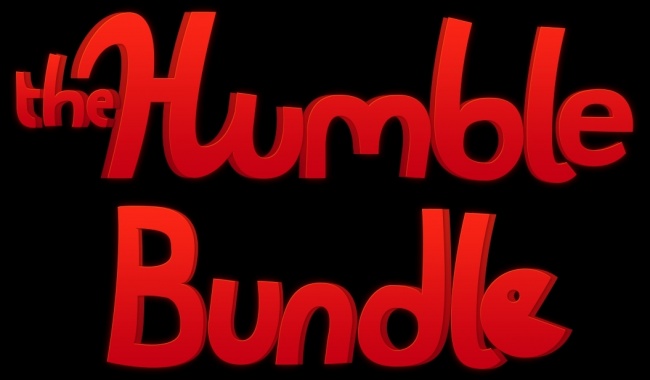
Inside the 'Pay What You Want' Digital Platform
Posted by ICv2 on February 6, 2015 @ 2:01 am CT
MORE COMICS
From Tiny Onion, Dynamite, Image, IDW
July 18, 2025
There are four Humble Bundle deals running right now, from Tiny Onion, Dynamite, Image, and IDW.
From Marvel Comics
July 18, 2025
Age of Revelation, a new status quo taking place 10 years into the future and arising out of current developments in the X-Men titles, begins in October.
MORE NEWS
With 'Fanzone: Electronic Football Trivia Game'
July 18, 2025
Ultra PRO will release Fanzone: Electronic Football Trivia Game into retail.
Booster Set Adds King Ghidorah, Gigan, and Spacegodzilla
July 18, 2025
Bushiroad announced a second booster set for Godzilla Card Game.



